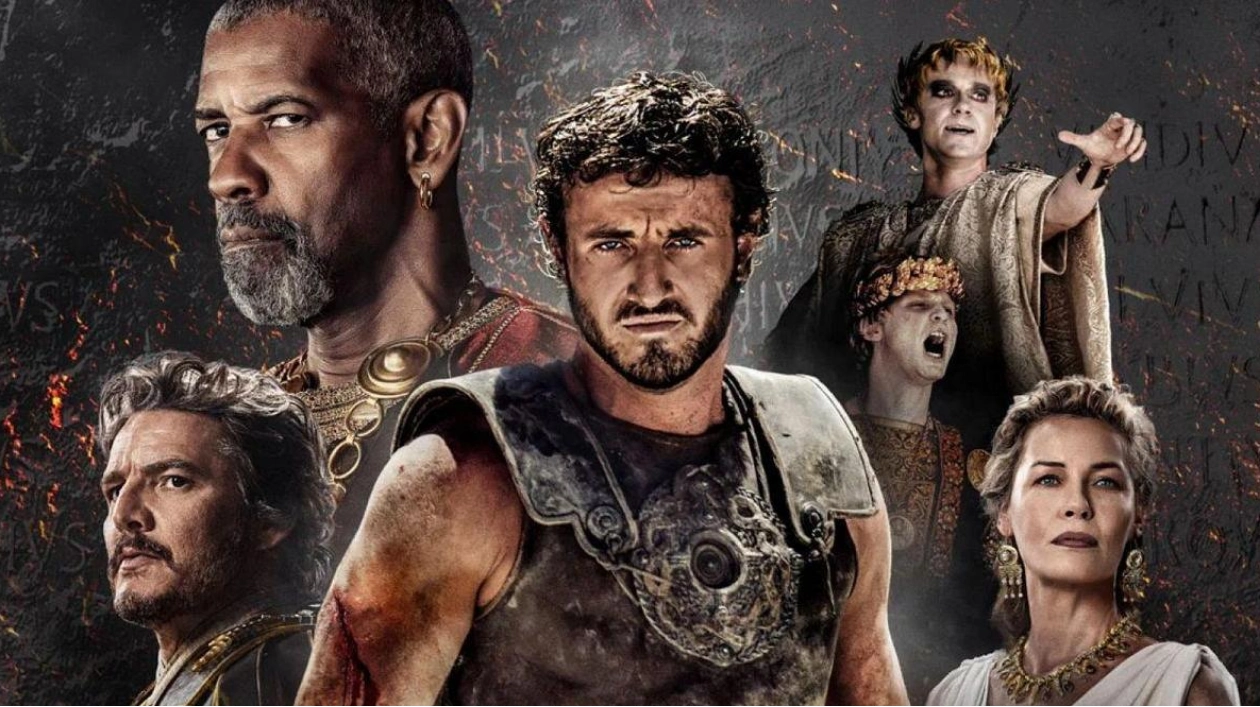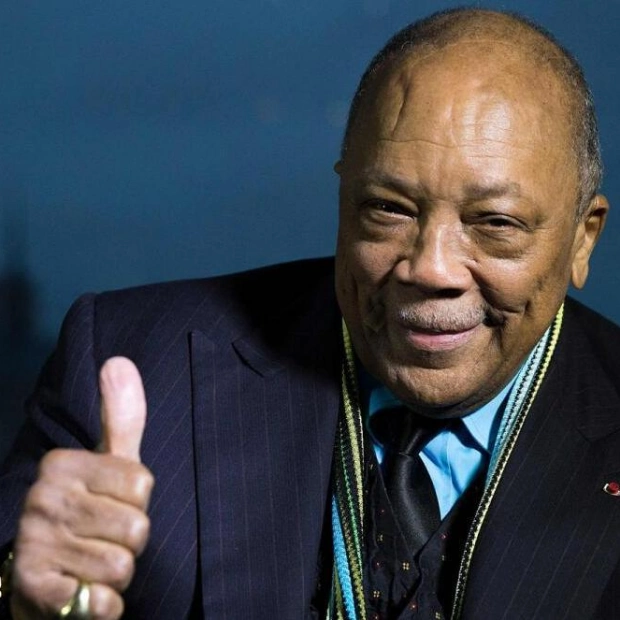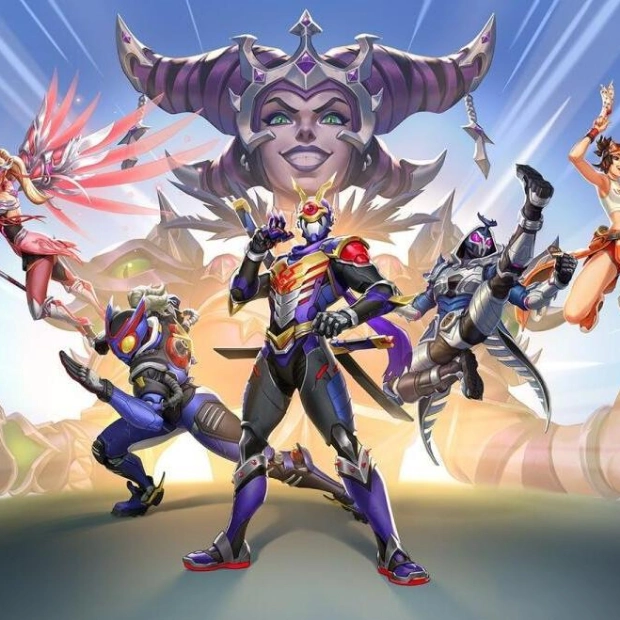There were plenty of reasons to feel anxious about Gladiator II. Or, more accurately, as the opening credits reveal: Glad-II-ator. So, let’s start pronouncing this legacy sequel correctly: “Gladiiiiiiiiator”. If Josh Trank’s ill-fated Fant4stic can’t escape being called “Fant-four-stick”, there’s no reason why this sequel to the Oscar-winning 2000 original should get a pass just because it’s Ridley Scott at the helm. GladIIator has some significant shoes to fill, as even 24 years later, some of Gladiator’s epic speeches, thrilling battles, and Hans Zimmer’s Zeus-tier score still resonate. Plus, Scott is a director who is very hit-or-miss. For every Alien, Blade Runner, Gladiator, and The Martian, there’s a Kingdom of Heaven, A Good Year, The Counselor, and Napoleon. No negative words can be said about House of Gucci – it’s a camp masterpiece, and that’s that.
Still, all eyes are on Scott’s return to the colosseum sandbox, and the end result is difficult to dismiss but still hard to defend. Unlike the wild sequel idea proposed by Nick Cave, who envisioned Maximus (Russell Crowe) battling his way out of the afterlife, GladIIator picks up 16 years after the death of our beloved commander of the Armies of the North, General of the Felix Legions, and loyal servant to the TRUE emperor, Marcus Aurelius. The dream that was once Rome has been forgotten. The empire is on the brink of collapse, with not one but two sniveling and anemic-looking emperors at the helm – Geta (Joseph Quinn) and Caracalla (Fred Hechinger). Imagine Romulus and Remus if they were John Lydon-aping petulant pricks. Their tyrannical rule is defined by an insatiable bloodlust for conquering countries.
Enter a tanned and beefed-up Lucius Verus (Paul Mescal), Maximus’ son, who came of age under the name Hanno. He vows vengeance against General Marcus Acacius (Pedro Pascal), who leads a seaborne military campaign into the North African province of Numidia, resulting in the death of Lucius’ wife Arishat (Yuval Gonen) and his capture. You can guess what happens next, as GladIIator is essentially a rehash of Gladiator’s script. Lucius is sold as a gladiator, having impressed Macrinus (Denzel Washington) – a slave owner and political schemer with plans for Rome’s future. Little does Lucius know, however, that Acacia is tired of the endless need for more territories and is secretly plotting a coup to end the reign of Geta and Caracalla. Not only that, but the general is married to his estranged mother, Lucilla (Connie Nielsen, reprising her role from the first film), who exiled her son from Rome after the events of the first film to protect him from the plotting mob. That makes Lucius the grandson of Marcus Aurelius, and therefore the rightful heir to the Roman empire…
If the course of true love never did run smooth, the path to revenge isn’t much more polished. Let’s address the obligatory question: “Are you not entertained?” Yes, GladIIator is well-made and entertaining. Who wouldn’t be distracted by gladiators facing off against a horde of baboons in berserker mode, a lumbering rhino, and a shark-infested colosseum? However, this belated follow-up doesn’t reach the heights of its predecessor and will most definitely not “echo in eternity.” The bulk of the blame lies with screenwriter David Scarpa. The scribe, who wrote Scott’s All the Money in the World and last year’s Napoleon, makes this an unnecessary continuation. Long gone are the epic speeches (“Where death is, we are not” pales compared to David Franzoni, William Nicholson, and John Logan’s “Death smiles at us all, all a man can do is smile back”) and the emotional heft of Gladiator is lacking. This sequel is all too happy to coast on nostalgic callbacks instead of carving out its own place in history.
(Mild spoiler ahead) It can’t even fashion an ending of its own, preferring instead to give us yet another flashback. (Mild spoiler over) The all-too-familiar beats are matched by baffling pacing. Setting aside some very questionable CGI, the much-lamented absence of Zimmer on composing duties, some glaring historical inaccuracies, and the fact that both Quinn and Hechinger can’t equal Joaquin Phoenix’s Commodus, there’s little here for the audience to grapple with. When it comes to the action, the well-designed set pieces can’t make up for the fact that there’s absolutely no build-up or sustained tension here. As soon as the games begin, the battles are frustratingly dispatched in a flash. As for the emotional stakes, they are rushed at best, leaving no motivational or sentimental weight. This results in the muscular Mescal having to do his level best with precious little. Granted, he’s a succulent beefcake, no one can take that away from him; however, the actor can’t wring out anything but flattened emotions, and nothing approaching a rousing call to arms.
Scott seems to have retained that what people enjoyed from Gladiator were the fight scenes, when in reality, combat was only memorable because the viewer cared about Maximus’ betrayal, his hurt, and his passionate quest for revenge. In GladIIator, nothing is explored with any depth, and rivalries lack consistency. Suddenly, all is forgiven between Lucius and Acacia, and the knotty resentment he harboured when it comes to his mother evaporates. She ends up getting a nice hug from her long-lost boy in a prison cell before yet another bewilderingly anticlimactic showdown. The only element that truly works is Denzel Washington. The actor relishes every line, knowing when to go Shakespearian and when to camp it up. An Oscar-worthy performance? Maybe not, but then again, he does make the whole show stay afloat – more so than some of the boats in the arena.
While visually engaging, GladIIator is a curiously hollow film that banks on big spectacle and small emotions, completely failing to step out of Gladiator’s shadow. Did Scott even want to? It shows that the director needed more than two decades to stick this landing. Either that or he should have left the original alone. In this sense, this sequel joins George Miller’s Furiosa: diverting, but equally unnecessary. This is what you get when a director and his screenwriter are content with dialing everything up to 11 (except the emotion) and wallow in past glories instead of forging a new and dramatically satisfying narrative arc. “Strength and honour”? More diluted bis repetita. GladIIator is out in cinemas now.
Source link: https://www.euronews.com






